Switzerland’s 20 living ex-presidents: a world record
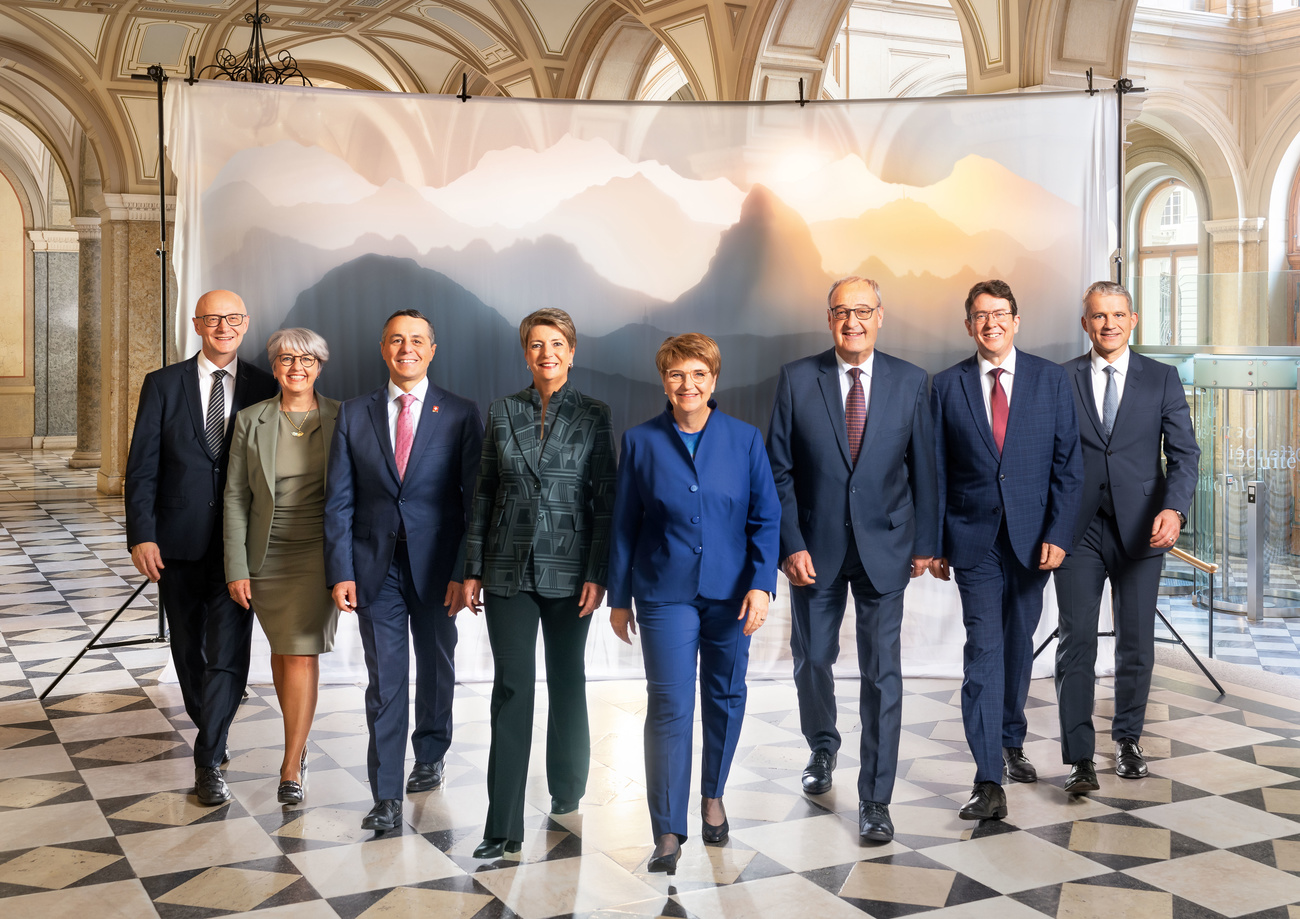
Britain has eight, the United States has five, France and Germany have only two. Switzerland, however, has 20 members of the “Living Former Presidents Society”. What does this record say about the country’s political stability and leadership?
Very little. It’s largely a trick question. Switzerland’s unique rotating one-year presidency can’t be compared with the head of government in any other country (the chancellor in Germany and prime minister in Britain).
Did you know, for example, that the Swiss president never pays a state visit?
The Swiss president is neither the head of state nor the head of government. The seven-person cabinet, also known as the federal council, is considered a collective head of state and government. The president might be “primus inter pares” – the first among equals – but he or she doesn’t have any greater power than the rest of the cabinet.
What’s more, during their year in office presidents remain head of their department. Karin Keller-Sutter, for example, is both president and finance minister in 2025.
It’s one for all and all for one: the cabinet does everything together, from taking a stance on policies to signing treaties and receiving visiting heads of state (although not all seven ministers are always present).
So what’s the point in the Swiss president? What do they actually do? The tasks of the presidentExternal link include chairing cabinet meetings and undertaking special representational duties. They give speeches at New Year and on Swiss National Day, August 1, which are broadcast on television and radio (and swissinfo.ch).
They also welcome the diplomatic corps – all foreign ambassadors to Switzerland – at a New Year’s reception.
Waiting game
Compared with other countries, becoming president in Switzerland is relatively easy. In a nutshell, get elected to cabinet by parliament and wait your turn. This will come when all the cabinet ministers who were elected before you have served as president during your time in the cabinet, i.e. a maximum of six years.
Quirky fact: any Swiss citizen over 18 who reckons they are minister material can put themselves forward for nomination to the cabinet. Parliament can even pick someone who hasn’t put themselves forward (hence regular jokey campaigns for Roger Federer to be catapulted into office), but in almost all cases parliamentarians have been chosen.
Karl Schenk and Emil Welti each held the office of president a record six times. Welti was a cabinet minister for 24 years and Schenk for a record 31 years, both in the second half of the 19th century.
Only twice has an elected president not taken up office: Victor Ruffy, elected president for 1870, died on December 29, 1869. Fridolin Anderwert was set to become president in 1881 but the press orchestrated a campaign against him and he committed suicide on Christmas Day 1880. A sitting president has never resigned from office, although Wilhelm Hertenstein died in office in 1888.
There have been six female presidents. Ruth Dreifuss was the first woman to be elected president (in 1999). She was followed by Micheline Calmy-Rey (2007 and 2011), Doris Leuthard (2010 and 2017), Eveline Widmer-Schlumpf (2012), Simonetta Sommaruga (2015 and 2020) and Viola Amherd (2024).
The youngest Swiss president was Jakob Stämpfli, who was 35 when he took office in 1856 (the first of three times). The oldest was Adolf Deucher, who was 77 when he became president for the fourth time in 1909.
Every December, parliament elects one of the seven cabinet ministers to be president, although it’s actually just a question of sticking to the order of seniority and confirming the vice-president (current veep Guy Parmelin will take over from Keller-Sutter on January 1).
Swiss citizens have no say in who is elected to cabinet and, therefore, president.
But as long as parliament keeps re-electing you as a cabinet minister every four years (the odds are good: only four ministers have not been re-elected since 1848), there’s no limit on how long you can stay in the cabinet or how many times you can be president (the record is six). In practice, however, few ministers nowadays serve a third term as president – the last to do so was Kurt Furgler in 1985.
So become a cabinet minister, stay out of trouble and you’re basically guaranteed the presidency. Only two living ministers didn’t become president: Ruth Metzler entered cabinet in 1999 and wasn’t re-elected in 2003; Christoph Blocher entered cabinet in 2003 and wasn’t re-elected in 2007.
‘Question of perspective’
Here’s a riddle: a Swiss president never pays a state visit but can still be received for a state visit. How?
As mentioned, the Swiss president is not the head of state, therefore from a Swiss point of view one should talk of a “presidential visit”. However, as the government explainsExternal link, “for the host country, the situation is somewhat different. For although no one individual is considered to be head of state in Switzerland, the president should be accorded the same standing as his or her foreign counterparts”.
“Quite reasonably,” it continues, “other countries regard these occasions when they invite or receive the Swiss president as a ‘state visit’; the term is therefore perfectly appropriate. It is up to the country issuing the invitation to decide whether it is for a working visit, an official visit or a state visit, with the full honours dictated by protocol. It is all a question of perspective.”
Former Swiss presidents who are still alive, and the year(s) they held office:
Arnold Koller 1990, 1997
Adolf Ogi 1993, 2000
Kaspar Villiger 1995, 2002
Ruth Dreifuss 1999 (first female president)
Moritz Leuenberger 2001, 2006
Pascal Couchepin 2003, 2008
Joseph Deiss 2004
Samuel Schmid 2005
Micheline Calmy-Rey 2007, 2011
Hans-Rudolf Merz 2009
Doris Leuthard 2010, 2017
Eveline Widmer-Schlumpf 2012
Ueli Maurer 2013, 2019
Didier Burkhalter 2014
Simonetta Sommaruga 2015, 2020
Johann Schneider-Ammann 2016
Alain Berset 2018, 2023
Viola Amherd 2024
Former presidents who are still in the cabinet:
Guy Parmelin 2021
Ignazio Cassis 2022
France (president): Nicolas Sarkozy, François Hollande
United States (president): Bill Clinton, George W Bush, Barack Obama, Donald Trump (returned to office in 2025), Joe Biden
Germany (chancellor): Gerhard Schröder, Angela Merkel
Britain (prime minister): John Major, Tony Blair, Gordon Brown, David Cameron, Theresa May, Boris Johnson, Liz Truss, Rishi Sunak
China (president): Hu Jintao
Russia (president): Vladimir Putin (since returned to office), Dmitri Medvedev
Italy (prime minister): Lamberto Dini, Massimo D’Alema, Giuliano Amato, Romano Prodi, Mario Monti, Enrico Letta, Matteo Renzi, Paolo Gentiloni, Giuseppe Conte, Mario Draghi

In compliance with the JTI standards
More: SWI swissinfo.ch certified by the Journalism Trust Initiative








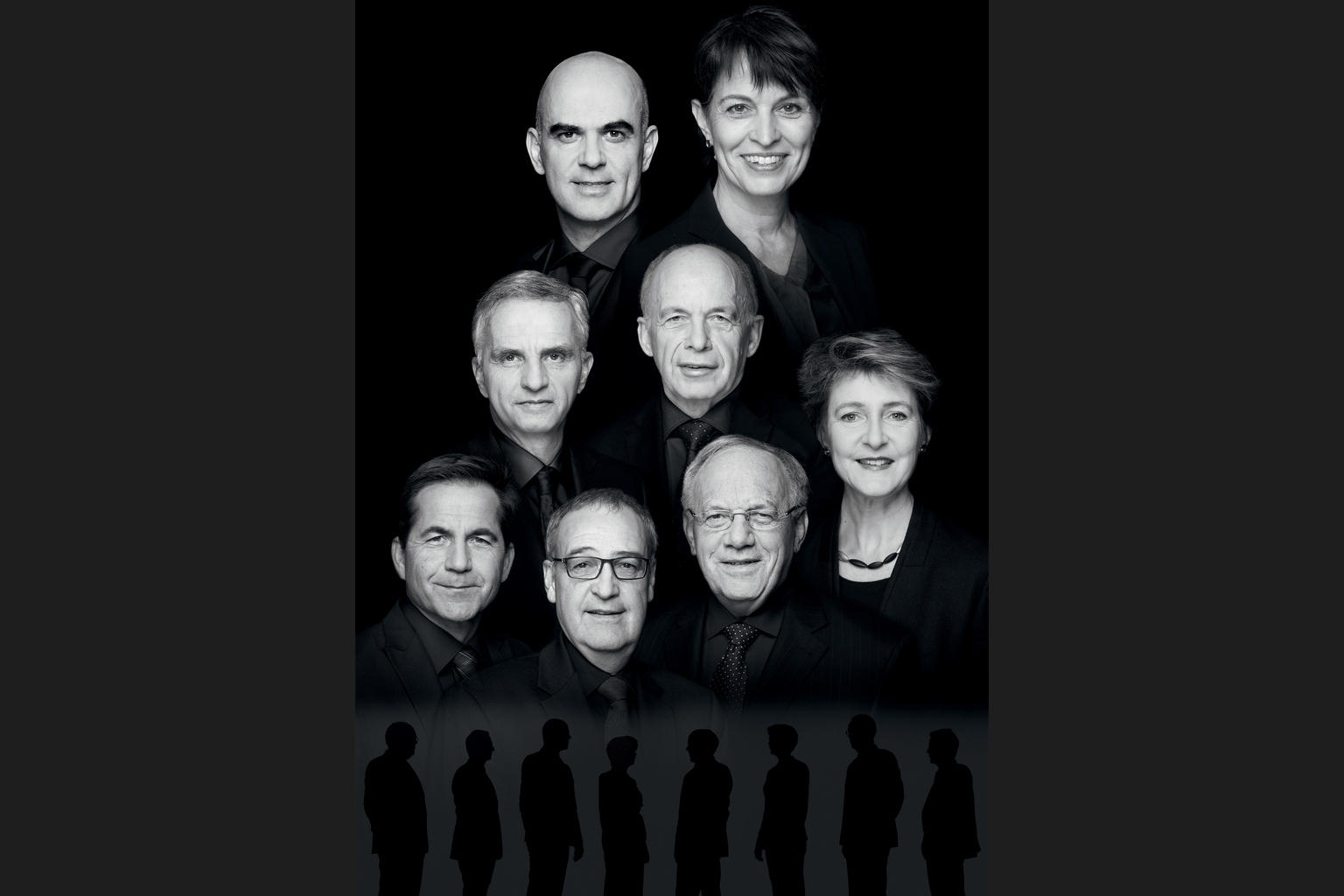


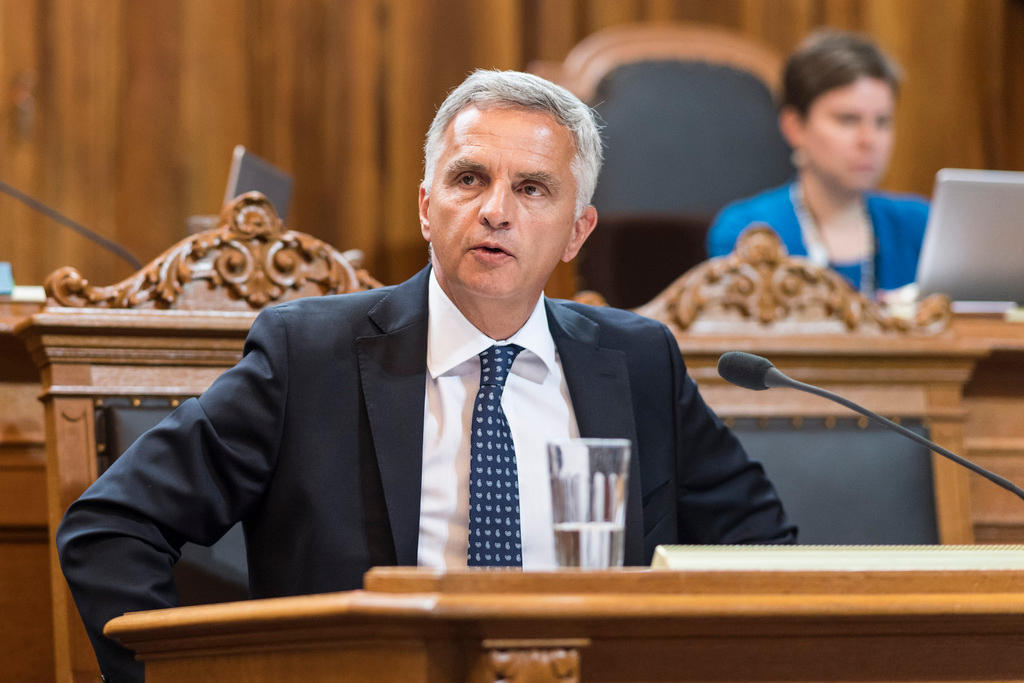

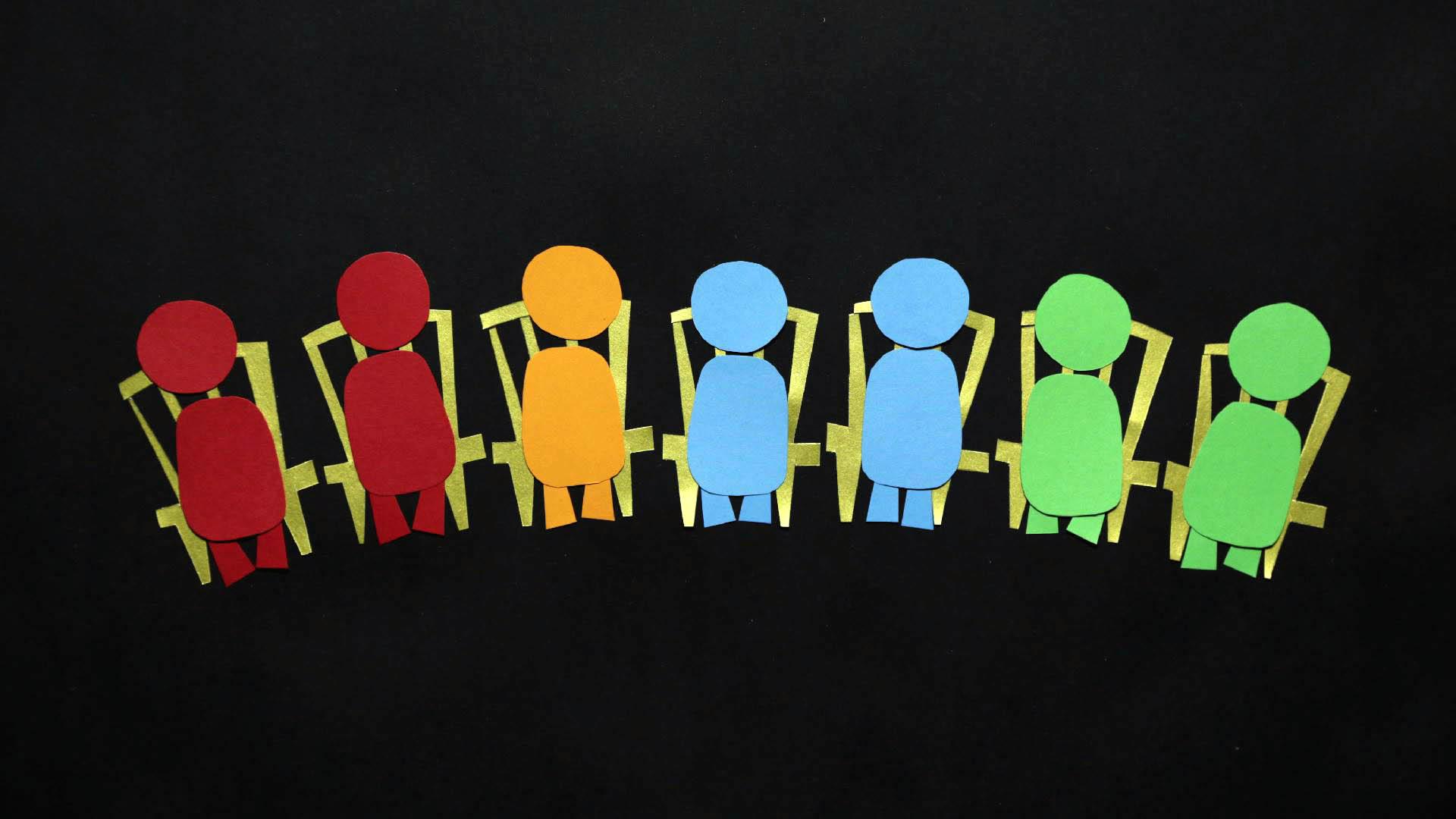
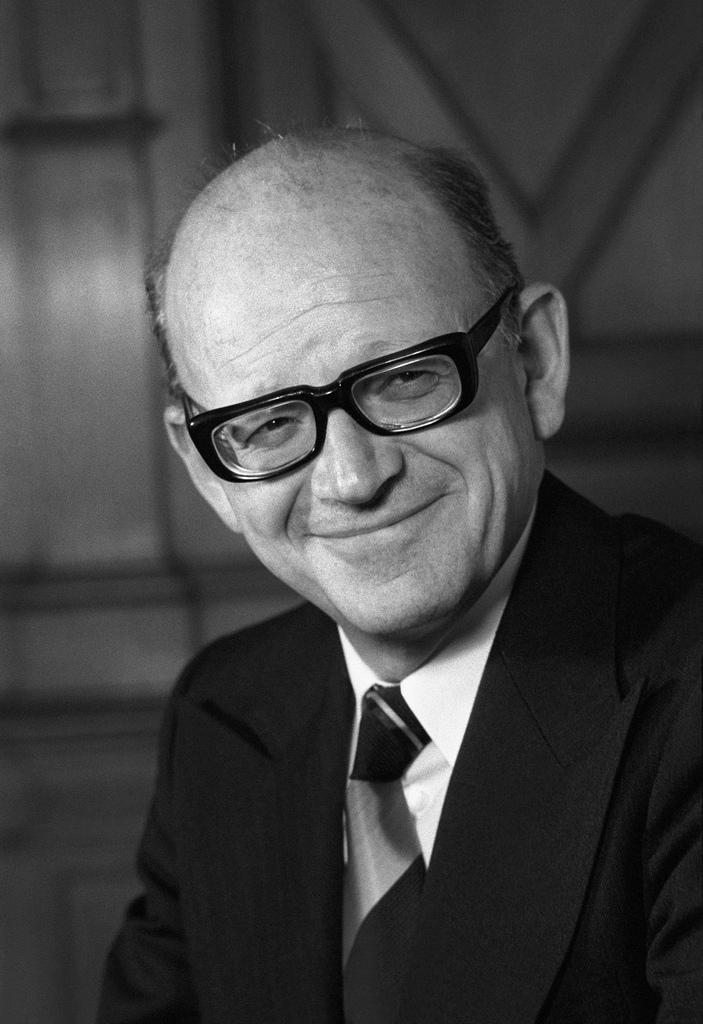
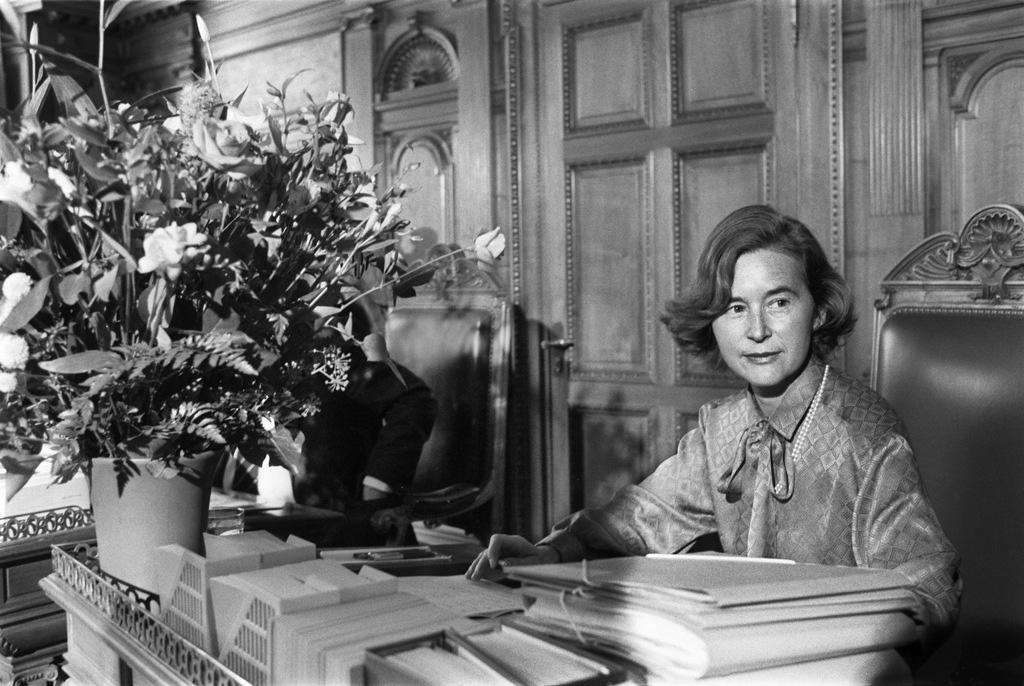
You can find an overview of ongoing debates with our journalists here . Please join us!
If you want to start a conversation about a topic raised in this article or want to report factual errors, email us at english@swissinfo.ch.